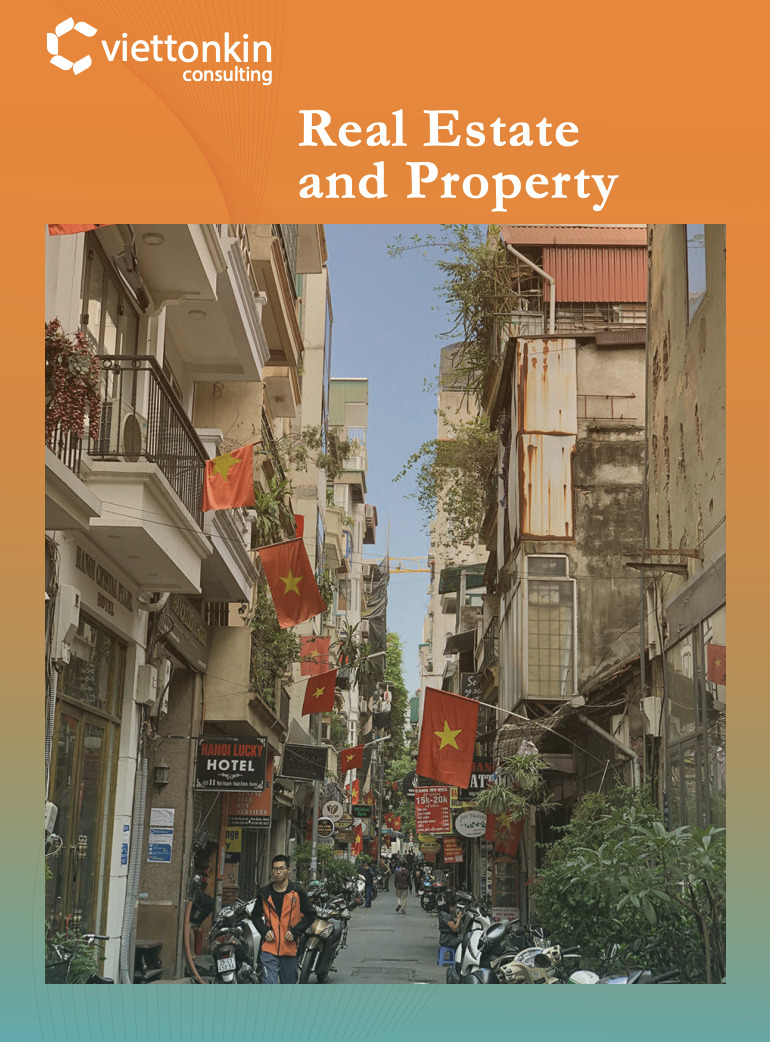Embarking on the next chapter in our exploration of the Vietnamese real estate terrain, this article delves deeper into the intricate fabric of challenges and opportunities within real estate M&A. Beyond the strategic imperatives outlined in the first piece, we now aim to dissect the complexities that real estate developers face in this dynamic landscape. From regulatory intricacies to economic nuances, we'll unravel the layers, providing a comprehensive understanding of the hurdles and prospects inherent in the world of real estate M&A. Join us as we navigate through the intricacies that shape the ongoing narrative of strategic growth in Vietnamese real estate.
Current M&A Trends in Vietnamese Real Estate
Foreign Investment Surge in Real Estate M&A
Against the backdrop of Vietnam's real estate resurgence, investors hailing from Singapore, South Korea, Taiwan, Japan, and Malaysia have collectively injected a substantial $1.4 billion into transformative M&A deals within the first seven months of the current year, according to the Southeast Asia and Vietnam Real Estate M&A Market Overview report. The M&A market's cumulative value in Vietnam, nearing $3.2 billion during this period, underscores the sector's robust growth, with a notable 92% of buyers in real estate M&A transactions being Taiwan, Singapore, and South Korea. This surge in foreign interest contributes significantly to the dynamic and evolving landscape of the Vietnamese real estate market.
Spotlight on Major M&A Transactions
Delving into the realm of major M&A transactions, the real estate sector has witnessed substantial deals that illuminate the market's vibrancy. ESR Group Limited, a major player in the Asia-Pacific asset management scene, made headlines with a $450 million investment to augment its ownership in BW Industrial Development Joint Stock Company (BW Industrial). This standout deal not only represents the largest in the real estate market but also serves as a benchmark in the industrial property segment. Simultaneously, Gamuda's acquisition of a 3.68-hectare project in Ho Chi Minh City’s Thu Duc city for $305 million, coupled with Keppel Corporation's strategic move, underscores the transformative impact of these M&A transactions on the housing and urban development landscape. Despite these successes, challenges persist, with ongoing negotiations navigating complex legal corridors surrounding foreign investors' real estate ownership in Vietnam.
Navigating Challenges in Real Estate M&A
Regulatory Complexities in Real Estate M&A
Embarking on real estate M&A endeavors in Vietnam necessitates a comprehensive understanding of the intricate legal frameworks governing the sector. Navigating regulatory complexities becomes a key aspect of successful transactions. Foreign investors engaging in M&A activities encounter challenges related to ownership structures, land use rights, and compliance with evolving regulations. Staying abreast of these legal intricacies becomes imperative for mitigating risks and ensuring a seamless transition in the dynamic Vietnamese real estate landscape. Lawyer Ngo Thi Van Quynh, Director of An Legal Company, highlights the complicated legal procedure as a major reason behind the slow progress of M&A deals, causing an increase in time and cost. Overcoming bureaucratic hurdles, especially in settling land use fees, remains a challenge for real estate investors. Proposed changes to the Land Law are expected to expedite processes, making housing more accessible for buyers, and generating more revenue for developers.
Market Risks: Economic, Political, and Industry-Specific Challenges
While changes in the legal framework have yet to be fully implemented, local authorities remain cautious in their execution. Until tangible progress occurs in land use fee settlement and the issuance of land use right certificates, completing M&A activities will remain challenging. The difficult economic situation has hindered large-scale investments, forcing a focus on small and medium-scale deals. Few domestic real estate developers possess the capital capacity for property purchases amid decreased liquidity and high financial costs. Big deals are anticipated from foreign investors. Data from the Vietnam Association of Realtors shows a sharp increase in the number of foreign investors interested in M&A projects in the Vietnamese real estate sector, particularly from Singapore, the Republic of Korea, Taiwan (China), Japan, and Malaysia. However, many deals are still in the verification and negotiation processes.
Seizing Opportunities: Strategic Approaches to Real Estate M&A
Capitalizing on Strong Economic Fundamentals: Catalysts for Real Estate M&A Growth
Navigating real estate M&A opportunities in Vietnam demands a keen understanding of the country's robust economic fundamentals. Driven by factors such as ongoing infrastructure development, urbanization trends, substantial foreign direct investment (FDI), and a growing middle class, the Vietnamese real estate market holds immense potential. The anticipation of legal frameworks accommodating M&A activities positions the market for substantial growth in the next two to three years. Proactive developers can leverage these economic catalysts to identify strategic opportunities, fostering sustainable growth in the dynamic real estate landscape.
Targeting Key Investment Regions: Focus on Housing and Industrial Real Estate
Foreign investors, particularly from Asian nations like Singapore, Korea, Thailand, Malaysia, and Japan, are poised to play an important role in Vietnam's real estate M&A landscape. The housing sector, driven by significant demand, becomes a focal point for major foreign investments. Hanoi and Ho Chi Minh City, along with neighboring localities in the North and South, emerge as strategic targets due to their proximity to airports and the presence of numerous industrial parks. Additionally, economic centers like Hai Phong City and Quang Ninh Province, and tourist hubs such as Da Nang, Hoi An, Phu Quoc Island, and Nha Trang attract foreign investors eyeing diverse and lucrative real estate opportunities. As the market anticipates improved investor sentiment, lowered bank interest rates, and enhanced liquidity, strategic developers stand to capitalize on the upward trajectory of the real estate sector.
Mitigating Risks: Proactive Strategies for a Smooth Real Estate M&A Journey
Mitigating risks is a critical aspect of ensuring a smooth real estate M&A journey. Developers should adopt proactive strategies to address potential challenges. This includes conducting comprehensive due diligence to identify and understand any legal, financial, operational, or commercial risks associated with the target property.
According to the Competition Law, businesses involved in economic concentration are required to submit a notification dossier to the National Competition Commission before commencing the economic concentration if they meet the notification threshold. The National Competition Commission will evaluate potential anti-competitive effects resulting from or likely to result from economic concentration, considering the factors outlined in articles 31 and 32 of this law.
Collaborating with legal experts and financial advisors can provide insights into potential hurdles and facilitate the development of risk mitigation plans. Additionally, developers should stay informed about regulatory changes and market trends, allowing them to adapt their strategies in response to evolving conditions. Proactive risk management enhances the resilience of real estate M&A endeavors, contributing to long-term success in the Vietnamese market.
Final Thoughts
Highlighting the strategic role of M&A in the real estate ecosystem, this comprehensive exploration of real estate M&Atrends, challenges, and opportunities serves as a blueprint for developers. As we emphasize the proactive stance required for future success, we extend an invitation to delve into M&A activities with Viettonkin. Leverage our expertise for informed decisions; consult us for strategic guidance in the Vietnamese real estate market and customized services that will drive your real estate M&A to success.







